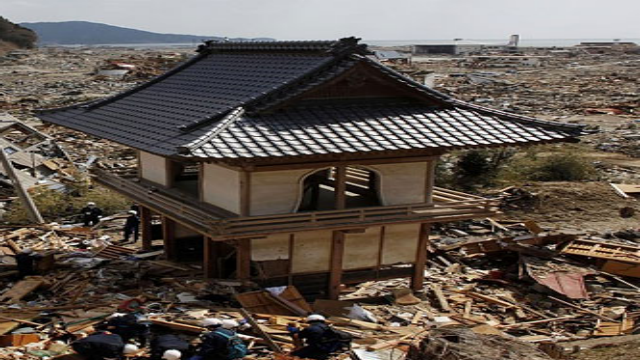Why Many Mormons Are Uncomfortable with Mitt Romney

What’s the Big Idea?
Given the fact that Mormons were a key group that helped Mitt Romney win important victories in states such as Nevada and Arizona, it may seem counterintuitive that many Mormons are uncomfortable with a Romney candidacy.
And yet, Matthew Bowman, author of the new book, The Mormon People: The Making of an American Faith, says that is just the case in a recent interview with Big Think.
Bowman says that members of the Church of Jesus Christ of Latter-day Saints, or Mormons, “have a fairly well developed sense of persecution” and a sense that “the nation might be hostile to them.” And many Mormons feel “Mitt Romney’s campaign is sort of inviting that,” Bowman says.
Watch the video here:
What’s the Significance?
Bowman says the Mormon fear of persecution dates back to the 19th century. He points out that in the 1830s the state of Missouri issued “an extermination order saying that the Mormons have to be driven out of the state or all killed.” The nation’s hostile attitude toward Mormons also carried into the twentieth century when a Mormon apostle was elected to the U.S. Senate, a body that refused to seat him because it was feared he would have divided loyalties.
As Jon Krakauer pointed out in his 2003 book Under the Banner of Heaven: A Story of Violent Faith, the fear of divided loyalty in Mormon politicians comes from statements such as this one from John Taylor, the third LDS president, in 1880:
“God is greater than the United States, and when the Government conflicts with heaven, we will be ranged under the banner of heaven against the Government. The United States says we cannot marry more than one wife. God says different…”
John F. Kennedy had to answer the same question about his loyalty to church and state in the 1960 election, and did so in a speech that was criticized in this election cycle by Rick Santorum. Santorum’s attack was dismantled by big thinker Steven Mazie in this post, in which Mazie also argued that Romney ought to embrace Kennedy. He writes:
“If Mitt Romney becomes the GOP nominee, we are about to embark upon another presidential race with a candidate whose religion elicits suspicion and denigration. Romney would be wise to think more like JFK, and less like Santorum, as his Mormonism comes closer to the spotlight.”
Indeed, Romney has been criticized throughout this campaign for failing to show his human side and connect with voters. Critics have been quick to assert that this is due to Romney’s wealth. He just doesn’t feel the pain of ordinary Americans, they say. And yet, another possible explanation for Romney’s authenticity problem is that his Mormon faith is actually a big part of his life. By censoring himself, out of fear of persecution, he is unable to tell voters who he really is.
As Bowman points out, this fear is not an imagined one. After all, the megachurch pastor Robert Jeffress told his 10,000 member congregation that Mormons are a non-Christian cult, and that he was therefore endorsing Rick Perry, a true “Christian statesman.”
Imagine if Barack Obama was unable to speak about growing up black in America. That self-censorship would have robbed him of one of the most powerful campaign narratives in history. So will Romney confront this issue the way Obama did with his 2008 speech in Philadelphia on race relations? You probably don’t remember, but Romney actually did address his Mormon faith the last election cycle, in 2007. But once again, you probably don’t remember that. Romney has avoided mentioning the word “Mormon” during this election, and that could be at his own peril.
Image courtesy of Shutterstock
Follow Daniel Honan on Twitter @Daniel Honan




